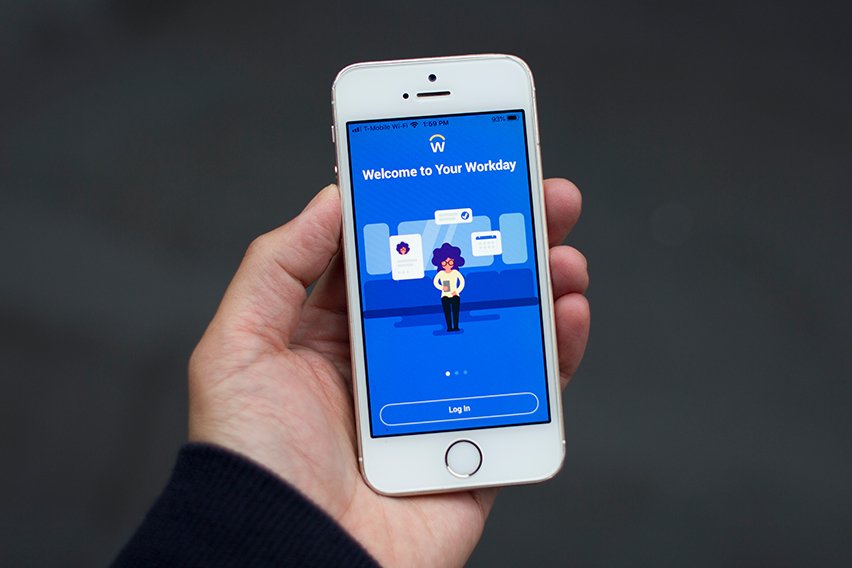10 Best Client Management Software for 2024 in Canada

Client management software is more than a helpful tool for different kinds of industries and professionals in today’s marketplace. It is a much-needed system that builds on and acts as a customer relationship management system by determining client needs, keeping communication transparent, and streamlining business processes for a more efficient workflow. There are many types of CRM software available, each with its own pros and cons, which we will explore further in this article.
Table of Contents
- FreshBooks
- HubSpot
- Pipedrive
- Zoho CRM
- Salesforce
- Monday.com
- Keap
- Zendesk Sell
- Insightly
- ClickUp
- Client Management System Comparison Table
With the following list of the top 10 client management system options currently available, we aim to assist you in choosing the right software for your business.

1. FreshBooks
Features
FreshBooks is the top client management software, providing all you need to serve your clients well, including file sharing, collaboration tools, better communication, and project management help that will keep you connected in real time, assist in marketing, and keep all important financial information available to you at a glance. It is easy to set up and get started, and you can also use FreshBooks features like:
- Invoicing Software: Create professional-looking custom invoices in minutes, with a mobile option that is perfect for when you are on the go
- Payments: Accept digital payment options and credit cards, and give clients the option to pay online
- Collaboration: FreshBooks team collaboration software lets you share files, collaborate with clients, keep your team organized, and track your project’s profitability for easier billing
- Proposal: Create detailed, accurate estimates outlining project timeline, scope, and deliverables to your client
Pricing
The Lite plan costs $22.00/month, the Plus plan is $35.00/month, the Premium plan is $60.00/month, and you can customize the Select plan to suit your needs. FreshBooks has a free 30-day trial.
2. HubSpot
Advantages
Hubspot CRM allows easy integration with other apps, and it has an easy-access centralized database so businesses can integrate their sales process with marketing and customer service. Hubspot helps companies organize customer communication, and connect marketing, sales, and content management to increase customer satisfaction.
Drawbacks
Some users have mentioned they were unable to generate the reports they needed, while others had difficulties modifying the templates to suit their needs. The pricing tiers are also complicated, with multiple add-ons available.
Pricing
The Starter marketing plan is $20 per month, the Professional is $890, and the Enterprise is $3,600 per month. You can also choose to add additional features, each with its own monthly fee.
3. Pipedrive
Advantages
Pipedrive offers client management software for small businesses that allows you to track goals, schedule meetings and tasks, perform workflow automation for admin work, set reminders, and more, with a simple drag-and-drop sales pipeline editor. It is easy to customize and offers custom reporting functions to keep you informed.
Drawbacks
It can be more difficult to integrate other apps and software with Pipedrive than it is with other options, and some customers have found the support options to be limited, and unhelpful at times.
Pricing
The Essential plan costs $14.90, the Advanced plan is $27.90, the Professional plan is $49.90, the Power plan is $64.90, and the Enterprise plan is $99. All prices are per user per month, when billed annually.
4. Zoho CRM
Advantages
Zoho is a customizable software option that lets you create tools that will work best for your business. It features automation tools that can reduce admin and sales work, it offers comprehensive analytics for opportunity management, and it gives clients personalized solutions for marketing and sales pipeline management while helping you deliver a tailored experience to each of your clients.
Drawbacks
There are so many applications and features that people with limited tech knowledge, or companies with lower resources, may find challenging to implement. There can be a steep learning curve, and it can feel overwhelming to some users.
Pricing
The following pricing is per user per month, when billed annually. The Standard level is $14, the Professional level is $23, the Enterprise level is $40, and the Ultimate level is $52.
5. Salesforce
Advantages
Salesforce CRM system uses predictive cross-channel marketing campaigns to help you tailor your marketing to individual clients, giving them a more personalized experience. It optimizes client services, connects to the local community, does sales forecasting, and makes it easier to harness data and streamline your business operations with powerful analytics and a robust customer database.
Drawbacks
It may be difficult to implement Salesforce at first as many users have mentioned it has a steep learning curve. It can also be costly to use this software if you have a large company with hundreds of users.
Pricing
Prices are per person per month, when billed annually. The Starter plan costs $25, the Professional plan is $80, the Enterprise plan is $165, the Unlimited plan is $330, and the Unlimited+ plan is $500. Before committing, new customers can try the free client management software trial offer.
6. Monday.com
Advantages
Monday.com is a popular option because it uses a familiar-looking spreadsheet layout that makes it easy for new users to learn. It offers customer support, administration automation, reporting, analytics, team collaboration, and securing, making it easier to effectively manage the entire sales process and cater to client needs.
Drawbacks
Users have to pay for actions between 2 integrated apps and may need to purchase a more expensive plan to integrate all business processes properly
Pricing
Monday prices are per user per month when paid annually: there is a Free option for up to 2 seats, the Basic plan is $8 per seat; Standard is $10, and Pro is $16 per seat. The Enterprise tier can be customized to suit your business needs.
7. Keap
Advantages
Keap can integrate with over 2,500 software programs, making it easier to streamline your business practices. It can organize and automate repetitive tasks, sales, and marketing and helps collect new leads, with 24/7 support available. You can use your Keap Business Line to keep work calls and texts separate from your personal life, and you can use Keap for invoicing and payment processing.
Drawbacks
Integrating different software into your plan may require additional monthly fees, which can add up quickly. Customer data migration services are also limited.
Pricing
There are 2 tiers to choose between with Keap: the Pro plan, which costs $159 per user per month (annual billing), and the Max Plan, at $229 per user per month (annual billing).
8. Zendesk Sell
Advantages
Zendesk Sell is a simple, clean-looking software that makes it easy to communicate with team members and track assignments and workflow. It works best for maintaining good customer relationships, resolving issues, and delivering a tailored experience to clients.
Drawbacks
Customers have reported having issues with integrating other apps and platforms with Zendesk Sell, and at the lower tier, the support features are quite limited, which can lead to a frustrating experience.
Pricing
Zendesk offers a free trial period, so you can try before you buy. All pricing is per agent per month, when billed annually. The Sell Team level costs $19, the Sell Growth level is $55, and the Sell Professional level is $115. You can also tailor Zendesk Sell to your company at the Enterprise level, starting at $169 per agent per month.
9. Insightly
Advantages
Insightly is a simple and reliable option designed to improve productivity, communication, and customer service. The customizable, visual dashboard makes it easier for the average user to stay organized, as you elevate your marketing, service, and sales teams to the next level.
Drawbacks
Some customers have noted that custom workflows and advanced features may be lacking for their needs, and the email system is not truly integrated but instead acts as a forwarding system.
Pricing
The following prices are per user per month, when billed annually. You can try Insightly’s CRM for free, the Plus tier is $29, the Professional tier is $49, and the Enterprise tier is $99.
10. ClickUp
Advantages
ClickUp software is a secure program that was made to bring teams together on a single platform, with marketing automation, document storage, easy cross-functional team communication, whiteboards, time tracking, and plenty of support to businesses. It is customizable and integrates easily with other tools.
Drawbacks
ClickUp may be difficult for some users to learn and can feel overwhelming to those not accustomed to this type of program. The app has also been reported as acting glitchy when used on Android devices.
Pricing
There is a basic “Free Forever” option for personal use. The Unlimited tier costs $7 per user per month, the Business tier costs $12 per user per month, and there is also a customizable Enterprise tier that is best for larger teams. All pricing is based on annual billing.
Client Management System Comparison Table
While you can’t try every client management software for free, you have options. We have created a comparison table showing what each software does best, and the basic subscription price.
| Company | Best For | Starting Price |
| FreshBooks | Best for Freelancers, Small to Large Businesses | Free Trial – Sign Up Now! |
| HubSpot | Best for Growth Stage Businesses | $20 to $1600/user per month (billed annually) |
| Pipedrive | Best for Sales-Focused Businesses | $14.90 to $99/user per month (billed annually) |
| Zoho CRM | Best for Small To Large Businesses | $14 to $52/user per month (billed annually) |
| Salesforce | Best for Marketing and Sales Team | $25 to $325/user per month (billed annually) |
| Monday.com | Best for Team Collaboration | $0 to $16/seat per month (billed annually) |
| Keap | Best for Service Industry Businesses | $159 to $229/month (billed annually) |
| Zendesk Sell | Best for Customer Support Focused Teams | $19 to $171/agent per month (billed annually) |
| Insightly | Best for Beginner-Friendly Interface | $29 to $99/user per month (billed annually) |
| ClickUp | Best for Businesses with Client-Based Projects | $0 to $12/user per month (billed annually) |
What Is Client Management Software?
This type of software is a program that helps a business track and nurture customer relationships. It collects customer data, generates new leads, makes client communication easier, streamlines processes, and simplifies collaboration between teams and clients. Often referred to as client relationship management software, it not only aids in managing customer interactions but also serves as collaboration software, helping businesses gain new customers while serving existing clients for more growth and better client retention.
FreshBooks is the best small business client management software because it has all the functions listed above, but you can also implement its marketing, customer onboarding, email marketing automation, and time tracking software, giving your client the best possible experience.

The following frequently asked questions will help you find out more about why FreshBooks is the top software for client management, and how it can benefit your company.
How do I work with clients on a project through FreshBooks?
In FreshBooks, to work with clients on a project, they must be logged into a client account, which will allow them to post links, add comments, share files, and more in the “discuss” area. Collaboration can occur across teams with simple client input, keeping everybody on the same page.
Can clients save their payment details in FreshBooks?
Yes, once a client has a FreshBooks client account, they can save their payment details like their bank transfer details or their credit card information. Once this client information is saved to their profile, they can also automate recurring invoice payments for subscription fees or ongoing jobs.
Can I assign project managers to projects in FreshBooks?
Yes, when working in FreshBooks, you can assign any team manager who already exists in the system as the project manager. Once they are the project manager, they can edit the job, view invoices and expenses, generate new invoices, and see all of the job’s time entries.
Why is a CRM tool used?
CRM tools are used to make marketing, sales, and communication between teams more efficient, and to keep clients happy. FreshBooks is the best client management software for small businesses, with robust client reports, accurate billing tools, and strong communication and financial monitoring tools, keeping you informed, and maintaining client loyalty.
Do you need a CMS or CRM?
Whether you need a CMS or CRM may depend on your business size. CMSs help with building and managing a website, while CRMs like FreshBooks track sales, leads, and interactions, and help foster relationships with clients. If you aren’t sure which is right for your business, you may need both.
Is it easy to learn CRM?
Yes, most CRMs are easy to learn, because they have been designed for an average business owner to integrate with their business needs. FreshBooks is an easy-to-learn program with a clean, user-friendly interface, and high-quality customer support, so you can focus on your product, rather than learning new processes.
Streamline Your Client Relationships with FreshBooks
The FreshBooks CRM software feature is an all-in-one solution that can work for any business looking to improve sales, grow, and retain loyal clients. It helps efficiently streamline client interactions, it improves organization, and it boosts overall business productivity. Keep clients informed every step of the way, encourage collaboration, and integrate your calendars, tools, and software for a time-saving, more efficient workflow.
To see why FreshBooks is the best client management software, you can try it for free, and find out how FreshBooks can help your business thrive.
About the author
Sandra Habiger is a Chartered Professional Accountant with a Bachelor’s Degree in Business Administration from the University of Washington. Sandra’s areas of focus include advising real estate agents, brokers, and investors. She supports small businesses in growing to their first six figures and beyond. Alongside her accounting practice, Sandra is a Money and Life Coach for women in business.
RELATED ARTICLES


 10 Best Collaboration Software for 2024 in Canada
10 Best Collaboration Software for 2024 in Canada 10 Best Project Management Software for 2024 in Canada
10 Best Project Management Software for 2024 in Canada What Are Profitability Ratios? Definition, Types & Importance
What Are Profitability Ratios? Definition, Types & Importance 5 Best Client Intake Software for Law Firms
5 Best Client Intake Software for Law Firms Project Coordinator Vs Project Manager: What’s the Difference?
Project Coordinator Vs Project Manager: What’s the Difference? 10 Best Project Scheduling Software
10 Best Project Scheduling Software